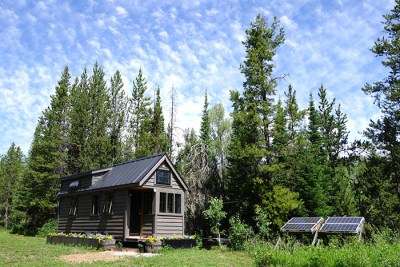Living off the grid has gained immense popularity in recent years, and as a result, the prices of off-grid land have skyrocketed. Before diving into this lifestyle, it is crucial to conduct thorough research and understand the necessary steps involved in purchasing suitable off-grid land. Walking the property line, verifying ownership, and checking water access rights are just a few factors to consider. Additionally, assessing the land’s value through tax records, understanding different types of land deeds, and checking zoning regulations are crucial steps to ensure a successful off-grid living experience. By making informed decisions and considering key takeaways, you can embark on a rewarding off-grid lifestyle.
Finding Suitable Off-Grid Land
Living off the grid has become increasingly popular in recent years, as more people embrace a self-sustainable and environmentally conscious lifestyle. However, finding suitable off-grid land can be a challenging task. It requires thorough research, evaluation of various factors, and consideration of legal and financial implications. In this article, we will guide you through the process of finding the perfect off-grid land that aligns with your goals and meets your needs.
Researching off-grid land
Research is the foundation of any successful off-grid land purchase. It is crucial to gather as much information as possible about different locations, property features, and legal considerations. Start by identifying suitable locations that offer the right balance of natural resources, access to basic amenities, and proximity to cities or towns.
Online resources for finding off-grid land
The internet is a valuable tool for researching off-grid land. There are numerous websites and online platforms dedicated to buying and selling off-grid properties. These platforms allow you to filter your search based on specific criteria such as location, acreage, and zoning regulations. Take advantage of these resources to explore available options and get a sense of the market.
Engaging with local real estate agents
While online resources can be helpful, it is also beneficial to connect with local real estate agents who specialize in off-grid properties. These professionals have extensive knowledge of the local market, regulations, and property availability. They can guide you through the entire process, provide valuable insights, and help you find properties that may not be listed online. Working with a real estate agent can save you time and ensure a smoother land purchase.
Walking the property line
Once you have identified potential properties, it is important to physically visit and walk the property line. This will give you a better understanding of the land’s topography, natural features, and potential obstacles. Pay attention to any trees, vegetation, or structures that may need to be removed or negotiated. Walking the property line also allows you to visualize how your off-grid living plans can be implemented on the land.
Verifying property ownership
Before proceeding with any land purchase, it is essential to verify the ownership of the property. This can be done by researching tax records or consulting with a local title company. Ensuring that the seller has legal ownership rights will protect you from any potential disputes or complications in the future. It is also advisable to conduct a thorough title search to identify any existing liens or encumbrances on the property.
Using drones for land survey
Drones have revolutionized land surveying, making it more efficient and cost-effective. Consider utilizing a drone to survey the off-grid land you are interested in. Drones can provide a detailed aerial view of the property, allowing you to assess its boundaries, features, and potential challenges. This technology can save you time and provide valuable insights into the land’s suitability for off-grid living.
Evaluating Off-Grid Land
After conducting initial research and identifying potential off-grid properties, the next step is to carefully evaluate each property to determine its suitability for your off-grid goals. Evaluating off-grid land involves assessing various factors such as land suitability, costs and permits, water access rights, and land value.
Assessing land suitability
Not all off-grid land is suitable for living and sustaining an off-grid lifestyle. It is important to thoroughly assess the land’s suitability based on your specific needs and goals. Consider factors such as solar exposure, water availability, soil quality, and potential for agriculture. Additionally, take into account any potential obstacles or limitations that may affect your off-grid plans, such as steep slopes, dense vegetation, or restricted building areas. A detailed assessment of land suitability will ensure that your off-grid living experience is successful and fulfilling.
Considering costs and permits
Off-grid living requires careful consideration of costs and permits. When evaluating off-grid land, calculate the initial purchase costs, including the land price and any associated fees such as closing costs or title insurance. Additionally, factor in the expenses of developing and maintaining the necessary infrastructure for off-grid living, such as solar panels, water wells, septic systems, and alternative energy sources.
Furthermore, it is important to understand the permits and regulations that may apply to your off-grid land. Research local zoning laws, building codes, and environmental regulations to ensure compliance and avoid any legal issues in the future. Consulting with experts such as architects, contractors, or environmental consultants can provide valuable guidance in navigating the complex landscape of permits and regulations.
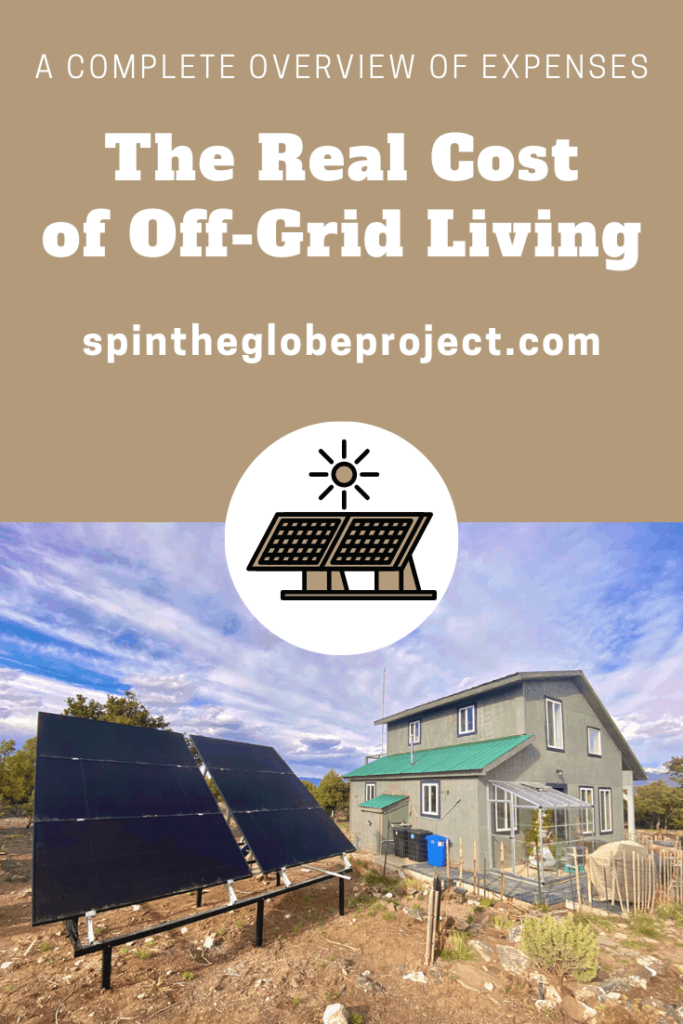
Checking water access rights
Access to water is a crucial aspect of off-grid living. When evaluating off-grid land, check the water access rights associated with the property. Verify ownership and usage rights to any existing water sources such as rivers, streams, or wells. Assess the quantity and quality of water available to sustain your off-grid needs, keeping in mind factors such as rainfall patterns, drought conditions, and water conservation methods. Ensuring a sustainable and reliable water supply is essential for a successful off-grid lifestyle.
Evaluating land value
Understanding the value of off-grid land is important for making informed decisions. Start by researching tax records to gather information about the property’s assessed value and tax history. This will give you a baseline value for the land. Additionally, examine market trends and comparable sales in the area to assess the property’s potential for appreciation or depreciation.
Consider the possibility of future development in the area, as this can impact the land’s value. Engage with property appraisers who specialize in off-grid properties to get a professional and unbiased evaluation of the land’s worth. Evaluating the land’s value will help you determine if the asking price is reasonable and if the investment aligns with your long-term goals.
Legal Considerations for Off-Grid Land
When purchasing off-grid land, it is crucial to consider the legal aspects to ensure a smooth and secure transaction. Understanding land deeds, access rights, zoning regulations, nearby amenities, and Homeowners Association (HOA) restrictions can significantly impact your off-grid living experience.
Understanding land deeds
Land deeds are legal documents that establish ownership of a property. When purchasing off-grid land, it is important to understand the different types of land deeds and their implications. Common types of land deeds include warranty deeds, quitclaim deeds, and special warranty deeds. Each type of deed offers different levels of protection and rights to the buyer. Consult with a real estate attorney to review the land deed and ensure that it provides you with the necessary ownership rights and protections.
Ensuring proper access rights
Proper access rights to off-grid land are essential for a hassle-free living experience. Before finalizing any land purchase, verify that you have legal access to the property without crossing others’ properties. Easements or right-of-way agreements may be necessary to establish access and avoid any future conflicts. Engaging with a surveyor or title company can help identify and negotiate any access issues.
Checking zoning regulations
Zoning regulations dictate how land can be used within a specific area. It is important to thoroughly review the zoning regulations for the off-grid land you are considering. Determine if residential use is permitted, and if there are any restrictions on the construction of off-grid structures or alternative energy systems. Familiarize yourself with setback requirements, building size limitations, and any other regulations that may impact your off-grid plans. Consulting with local planning departments or zoning experts can provide further clarification on the specific regulations in your desired area.
Considering nearby amenities
Proximity to basic amenities can significantly impact your off-grid living experience. Evaluate the distance from a city or town to determine the convenience of accessing essential services such as medical facilities, grocery stores, and schools. Additionally, consider the availability of road infrastructure and transportation options. While off-grid living aims for self-sustainability, access to nearby amenities can enhance your quality of life and provide a safety net if necessary.
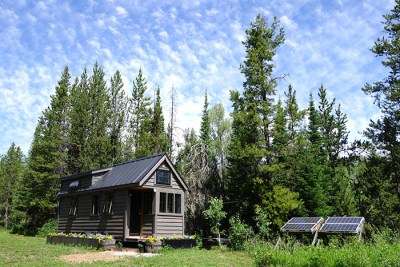
Avoiding HOA restrictions
Homeowners Associations (HOAs) are organizations that establish and enforce rules and regulations for properties within a specific community. When purchasing off-grid land, it is important to verify if there are any HOA restrictions that may limit or interfere with your off-grid lifestyle. Review the HOA bylaws, covenants, and restrictions to ensure they align with your goals and plans for off-grid living. Avoiding land within HOA-controlled areas will provide you with more freedom and flexibility to live according to your own preferences.
Factors Affecting Off-Grid Land Prices
The growing popularity of off-grid living has inevitably influenced the prices of off-grid land. Understanding the factors that affect off-grid land prices is essential for making informed decisions and finding the right property within your budget.
Rising popularity of off-grid living
The increased interest in off-grid living has driven up the demand for off-grid land. As more people seek a self-sustainable and environmentally conscious lifestyle, the competition for off-grid properties has intensified. This heightened demand has contributed to the overall increase in off-grid land prices.
Demand and supply dynamics
The basic principles of supply and demand also play a significant role in off-grid land prices. If the demand for off-grid land outweighs the available supply, prices tend to rise. Conversely, if there is a surplus of off-grid land and limited demand, prices may remain lower. Understanding the dynamics between supply and demand in the specific region you are interested in will help you gauge the market and negotiate a fair price.
Geographical location
Geographical location is a crucial factor in determining off-grid land prices. Land located in desirable regions with favorable climates, scenic views, or unique natural features tends to have higher price tags. Coastal or mountainous areas, for example, are often sought after for their beauty and potential for off-grid living. Consider the geographical location and its appeal when evaluating off-grid land prices.
Access to basic amenities
The availability and proximity to basic amenities can influence off-grid land prices. Land located near cities or towns with easy access to essential services such as medical facilities, grocery stores, or schools may command higher prices. On the other hand, remote or isolated land that requires more effort to access amenities may be priced lower. Assess the trade-offs between convenience and solitude when considering off-grid land prices.
Proximity to cities
The distance from cities or urban centers can impact off-grid land prices. Land located within a short drive of cities or towns may have higher price tags due to its accessibility and potential for convenience. Being close to urban areas provides opportunities for supplementary income, employment, and access to a wider range of services. Consider the compromises between proximity to cities and the desired level of seclusion when evaluating off-grid land prices.
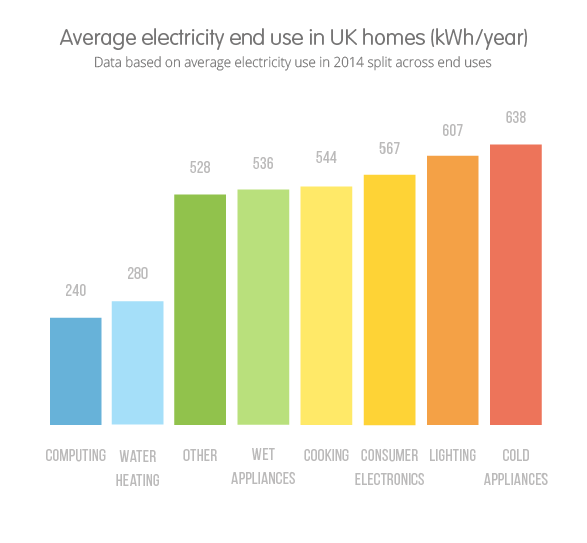
Presence of fire hydrants
The presence of fire hydrants can affect off-grid land prices, particularly in areas prone to wildfires or those with limited firefighting resources. Having a nearby fire hydrant can enhance the safety of your off-grid property and potentially reduce insurance costs. Land that has fire hydrants within a reasonable distance may be priced higher due to the added safety and peace of mind they provide.
Mail accessibility
Accessibility to mail services may seem like a minor consideration, but it can impact off-grid land prices. Some remote or rural areas may have limited mail delivery services or require residents to have a post office box. This can be inconvenient and may affect the overall accessibility and desirability of the off-grid land. Evaluate the mail accessibility options in the area when assessing off-grid land prices.
Researching Off-Grid Land
Thorough research is essential when searching for suitable off-grid land. By conducting comprehensive research, you can identify potential locations, gather information about available properties, and make informed decisions that align with your off-grid goals.
The importance of thorough research
Research lays the foundation for a successful off-grid land purchase. Thorough research allows you to gather information about different locations, property features, legal considerations, and market trends. It helps you understand the possibilities and limitations of off-grid living in specific areas and allows you to make well-informed decisions. The more time and effort you invest in research, the more likely you are to find suitable off-grid land that meets your needs.
Identifying suitable locations
Start your research by identifying suitable locations for off-grid living. Consider factors such as climate, natural resources, access to basic amenities, and proximity to cities or towns. Look for areas that align with your off-grid goals and offer the right balance of solitude and practicality. It is also helpful to consider the presence of like-minded communities or off-grid support networks in the area, as they can provide valuable resources and knowledge.
Online resources for finding off-grid land
The internet provides a wealth of resources for finding off-grid land. Numerous websites and online platforms specialize in listing off-grid properties. These platforms allow you to search for properties based on specific criteria such as location, acreage, and price range. Take advantage of these online resources to explore available options, access photos and property details, and get a sense of the market in different areas.
Engaging with local real estate agents
While online resources can be helpful, it is also beneficial to engage with local real estate agents who specialize in off-grid properties. Local real estate professionals have in-depth knowledge of the market, regulations, and property availability in their area. They can provide valuable insights, guide you through the process, and help you find properties that may not be listed online. Working with a real estate agent can save you time and ensure a safer and smoother land purchase.
Assessing Land Suitability
Before committing to an off-grid land purchase, it is crucial to assess the land’s suitability for your specific off-grid goals. Consider factors such as off-grid living objectives, potential obstacles, natural resources, and environmental factors. A thorough assessment will help you determine if the land aligns with your vision of self-sustainability and suits your long-term needs.
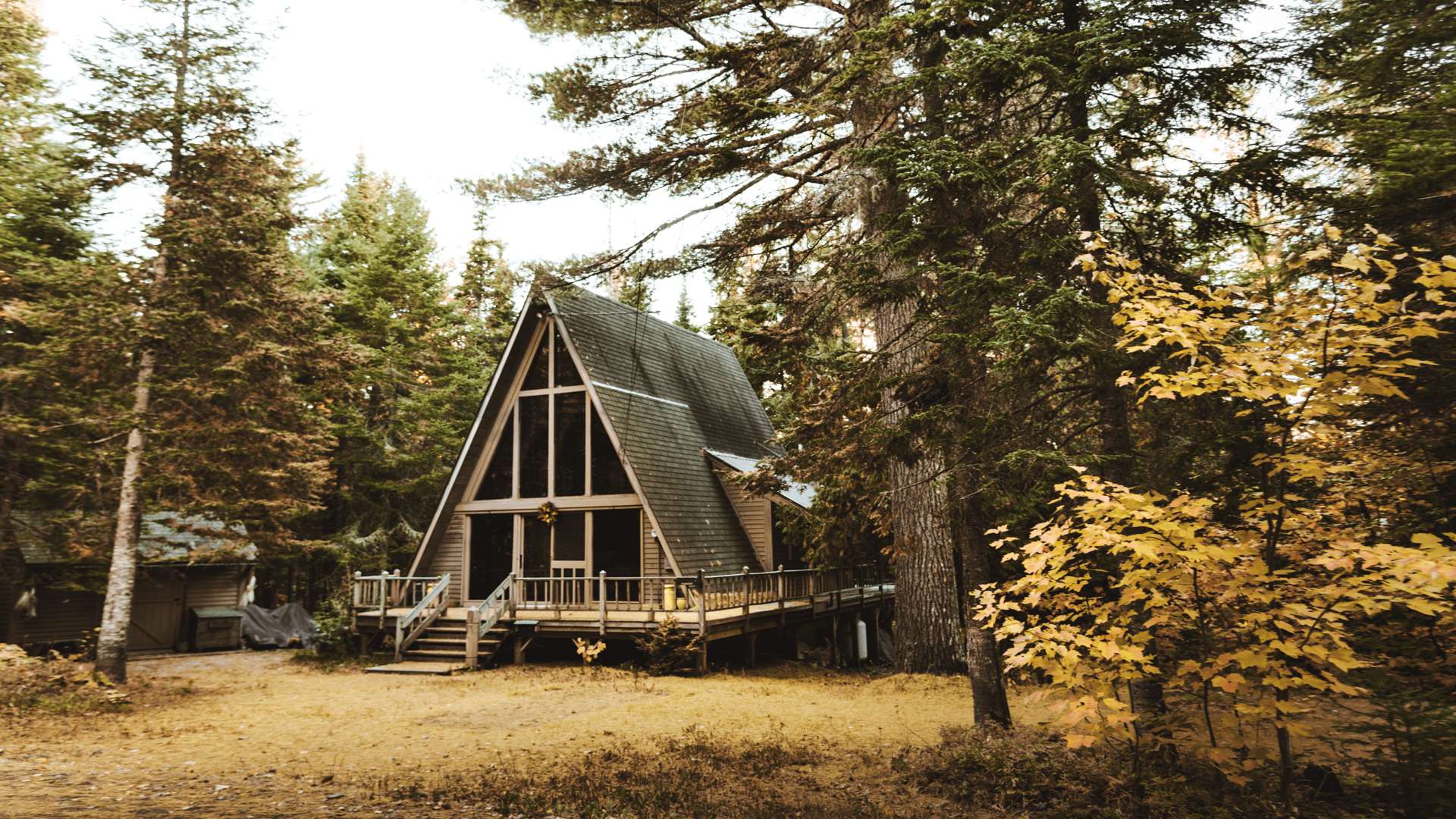
Understanding off-grid goals
Begin by defining your off-grid goals and objectives. What do you hope to achieve by living off the grid? Are you aiming for complete self-sustainability, or are you seeking a more sustainable and environmentally conscious lifestyle? By identifying your off-grid goals, you can better assess the suitability of potential land based on factors such as solar exposure, water availability, and space for agriculture or livestock.
Identifying potential obstacles
While off-grid living offers numerous benefits, there can be potential obstacles to overcome. Identify any potential challenges or limitations that the land may present for your off-grid plans. Consider factors such as topography, soil quality, vegetation, and accessibility. Steep slopes, limited sunlight, or dense vegetation, for example, can pose challenges for installing solar panels or growing crops. By identifying potential obstacles, you can determine if they can be overcome or if they significantly limit the land’s suitability.
Assessing natural resources
Evaluate the natural resources present on the land to determine its potential for self-sustainability. Consider factors such as access to water sources such as rivers, streams, or wells. Assess the quality and quantity of available water, keeping in mind factors such as rainfall patterns and water conservation methods. Additionally, evaluate the land’s potential for agriculture or livestock, taking into account soil fertility and suitable microclimates. An assessment of natural resources will help you determine if the land can support your off-grid lifestyle.
Considering environmental factors
Off-grid living often involves a deep commitment to sustainability and environmental conservation. Consider the environmental factors surrounding the off-grid land you are evaluating. Assess the presence of wildlife, biodiversity, and natural habitats in the area. Determine if there are any protected areas or conservation restrictions that may impact your ability to utilize the land. By considering environmental factors, you can ensure that your off-grid lifestyle is in harmony with the surrounding ecosystem and contribute to its preservation.
Considering Costs and Permits
Off-grid living requires careful consideration of costs and permits. When evaluating off-grid land, it is important to calculate the initial purchase costs, factor in infrastructure expenses, understand permits and regulations, and consult with experts to ensure a smooth and financially sustainable off-grid experience.
Calculating initial purchase costs
When considering off-grid land, it is crucial to calculate the initial purchase costs. This includes the price of the land itself, as well as any associated fees such as closing costs, title insurance, or legal fees. Additionally, budget for any necessary inspections or surveys that may be required. By accurately calculating the initial purchase costs, you can ensure that the land purchase fits within your budget.
Factoring in infrastructure expenses
Off-grid living often requires the development and maintenance of various infrastructure systems. Factor in the expenses associated with installing essential off-grid infrastructure such as solar panels, water wells, septic systems, and alternative energy sources. Evaluate the costs of these systems, including equipment, installation, and ongoing maintenance. If necessary, consult with professionals to get accurate estimates for these infrastructure expenses.
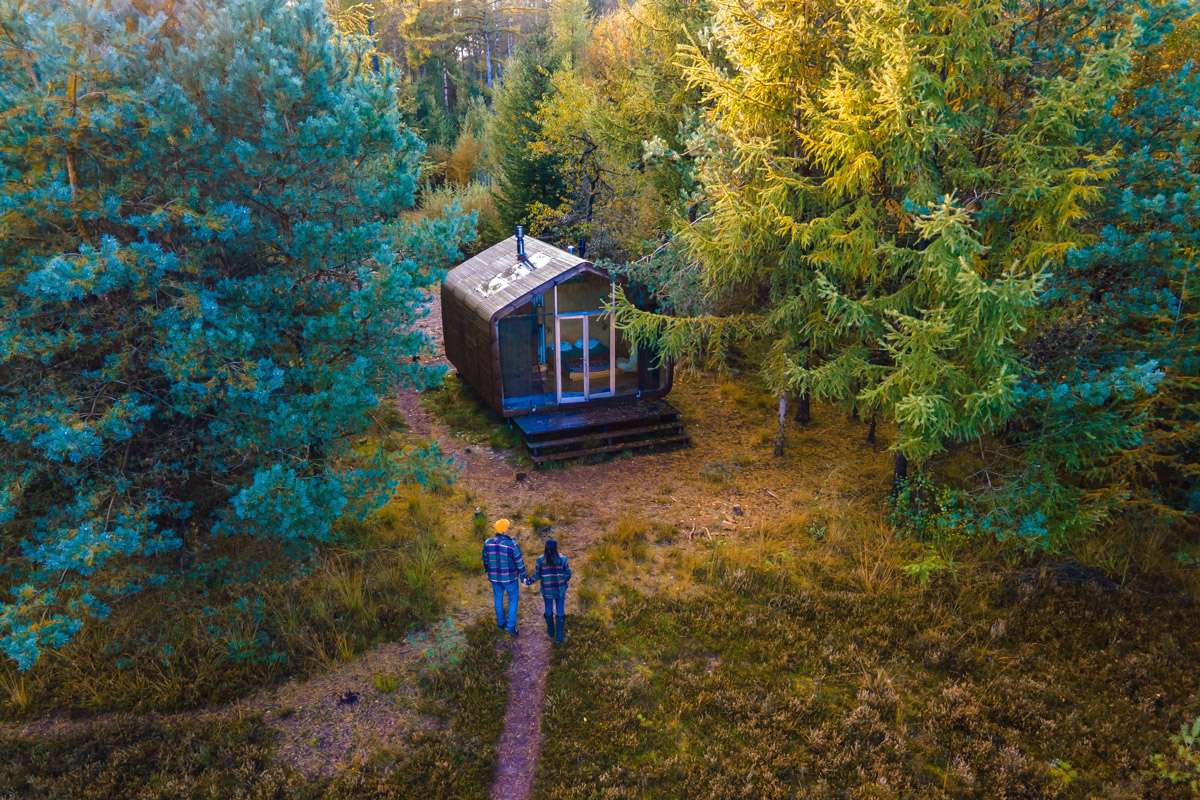
Understanding permits and regulations
Off-grid living is subject to various permits and regulations that must be understood and complied with. Research local zoning laws, building codes, and environmental regulations to determine the permits required for your off-grid living plans. Assess the associated costs of obtaining these permits and ensure that you have a clear understanding of the requirements and timelines. Consider consulting with experts such as architects, contractors, or environmental consultants to navigate the complex landscape of permits and regulations.
Consulting with experts
When evaluating the costs and permits required for off-grid land, it is advisable to consult with experts in the field. Architects, contractors, renewable energy specialists, or environmental consultants can provide valuable insights and guidance. They can help you navigate the complexities of off-grid infrastructure development, estimate costs accurately, and ensure that all necessary permits and regulations are properly addressed. Engaging with experts will help you make informed decisions and avoid costly mistakes in the long run.
Checking Water Access Rights
Access to water is essential for off-grid living. When evaluating off-grid land, it is crucial to check the water access rights associated with the property. Verification of water rights ownership, assessment of available water sources, consideration of water conservation methods, and ensuring a sustainable water supply are all important aspects to consider for a successful off-grid lifestyle.
Verifying water rights ownership
Before finalizing the purchase of off-grid land, verify the ownership of water rights associated with the property. Water rights indicate the legal entitlement to use water from specific sources such as rivers, streams, or wells. Review the relevant documentation, including water rights certificates or permits, to ensure that the seller has legal ownership and the right to transfer the water rights to you. Consulting with water rights attorneys or experts can provide additional assurance and guidance.
Assessing sources of water
Evaluate the sources of water available on the off-grid land. Consider existing water features such as rivers, streams, ponds, or lakes. Investigate the reliability and sustainability of these water sources, taking into account factors such as rainfall patterns, natural fluctuations, and potential impacts from climate change. Assess the quality and quantity of water available to meet your off-grid needs, including drinking water, irrigation, and livestock requirements.
Considering water conservation methods
Off-grid living emphasizes self-sustainability and efficient resource management. When evaluating off-grid land, consider the availability and suitability of water conservation methods. Assess the feasibility of rainwater harvesting, greywater recycling, or other water conservation techniques. Explore the possibilities of implementing water-efficient systems such as low-flow fixtures, drip irrigation, or water-efficient appliances. By considering water conservation methods, you can ensure the responsible and sustainable use of water resources on your off-grid property.
Ensuring sustainable water supply
One of the most important considerations for off-grid living is ensuring a sustainable and reliable water supply. Assess the availability of water throughout the year, particularly during dry seasons or drought conditions. Evaluate the possibility of groundwater replenishment through rainwater or natural recharge. Consider the longevity and reliability of existing water sources and the potential need for alternative water sources or methods of supply. Ensuring a sustainable water supply is crucial for the long-term viability of your off-grid lifestyle.
Evaluating Land Value
Evaluating the value of off-grid land is essential for making informed decisions and negotiating a fair price. By using tax records for valuation, assessing market trends and comparable sales, considering the potential for future development, and engaging with property appraisers, you can gain a comprehensive understanding of the land’s value.
Using tax records for valuation
Tax records can provide valuable information when evaluating the value of off-grid land. Research the property’s assessed value, which is typically used for determining property taxes. Compare the assessed value to the asking price to determine if it aligns with the market value. Additionally, review the tax history of the land to identify any changes in value over time. Tax records can serve as a starting point for valuing the land and negotiating a fair price.
Assessing market trends and comparable sales
Understanding market trends and comparable sales is crucial in determining the value of off-grid land. Research recent sales of similar off-grid properties in the area to analyze the market dynamics. Consider factors such as sale price, size, location, and features of these comparable properties. Compare the characteristics of the land you are evaluating to those of recently sold properties to determine if the asking price is reasonable. This analysis will help you make an informed decision and ensure that you are getting the best value for your investment.
Considering potential for future development
The potential for future development can impact the value of off-grid land. Evaluate the zoning regulations and any upcoming developments or infrastructure projects in the area. Determine if there is a possibility of the land gaining value due to increased demand, improved accessibility, or changes in the surrounding area. While off-grid living often emphasizes seclusion and solitude, it is important to consider the potential for future growth and development when evaluating the value of the land.
Engaging with property appraisers
When evaluating off-grid land, it is advisable to engage with property appraisers who specialize in off-grid properties. These professionals have the expertise to assess the value of off-grid land accurately. They consider various factors such as location, features, market trends, and comparable sales to provide a professional and unbiased appraisal. Engaging with property appraisers can provide you with a comprehensive understanding of the land’s value and ensure that you make an informed decision based on accurate information.
Making Informed Decisions
After conducting thorough research, evaluating land suitability, considering costs and permits, checking water access rights, and determining land value, it is time to make informed decisions regarding your off-grid land purchase. Consider the key takeaways from your research, consult with experts and professionals, weigh the pros and cons of each property, and ensure that your off-grid goals align with the long-term sustainability and fulfillment of off-grid living.
Considering key takeaways and factors
Throughout the research and evaluation process, take note of the key takeaways and factors that are most important to you. Consider the specific characteristics and requirements that align with your off-grid goals. Prioritize the factors that are crucial to your off-grid living experience, such as natural resources, access to amenities, or legal considerations. By considering these key takeaways and factors, you can focus on properties that best meet your needs.
Consulting with experts and professionals
When making important decisions about off-grid land, it is valuable to consult with experts and professionals in the field. Engage with real estate agents, architects, contractors, or environmental consultants to gain their insights and expertise. They can provide advice, guidance, and answers to specific questions or concerns you may have. By consulting with experts and professionals, you can make more informed decisions and avoid potential pitfalls or challenges.
Weighing pros and cons
Weighing the pros and cons of each off-grid property is essential for finding the right fit. Consider the advantages and disadvantages of each property based on factors such as location, land features, water availability, infrastructure requirements, and legal considerations. Evaluate how well each property aligns with your off-grid goals and assess the trade-offs of each option. By weighing the pros and cons, you can narrow down your choices and make a more informed decision.
Ensuring long-term sustainability and fulfillment of off-grid goals
Ultimately, the goal of purchasing off-grid land is to achieve long-term sustainability and fulfillment of your off-grid lifestyle. Consider how each property aligns with your vision of self-sustainability, environmental consciousness, and practicality. Evaluate the potential for successful off-grid living in terms of resources, infrastructure, and legal framework. By ensuring that your off-grid land purchase supports your long-term goals, you can embark on a fulfilling and sustainable off-grid living experience.

